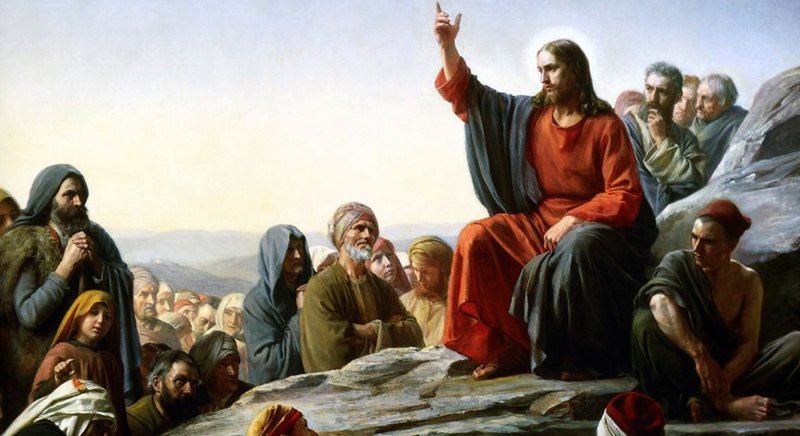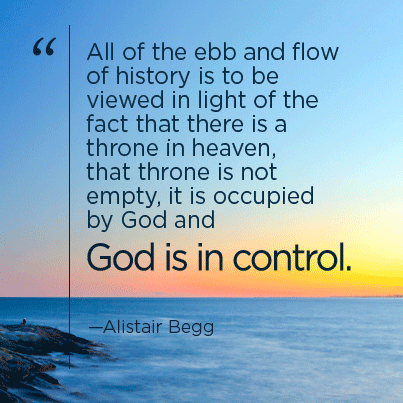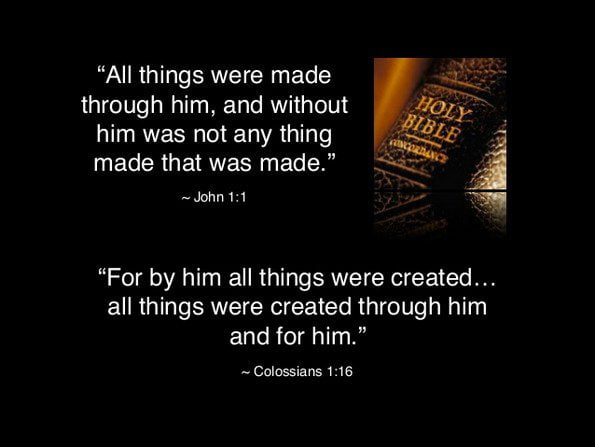
Several years ago, an Evangelical man by the name of Roger Smoak left the following comment on Why I Hate Jesus, the most widely read (and misunderstood) post on this site:
I would be interested in knowing what Really happened? Was it your fibromalga that wasn’t healed? Was it your oldest daughter with cystic fibrosis? Was it your dad dying at an early age or you mom who committed suicide? Was it depression you faced when you quit believing and/or your wife (pastor’s child) had to choose between you and her faith? Was it all the material wealth you experienced during your pastoring where you saw pastors who appeared to worship money instead of God? If the “Western Jesus” has destroyed your belief why can’t you believe in the Jesus of the New Testament? Every day you preached did you question is this was all a farce? What happened when you finally turned agnostic and publicly proclaimed this? Were you pastoring a church? I guess just as you judge others I would like to hear from yourself, church members, family, or someone who could shed some true light on what really happened to you.
When I receive comments such as this — and I have received hundreds of them over the past thirteen years — the first thing I do is look at the site logs to see exactly what the commenter has read.
Take Roger, a South Carolinian. He read:
- Prophet Jeremiah Johnson: Dr. Tony Fauci is a Rat Who Must be Silenced (A Google search brought him to this page.)
- About
- Why I Hate Jesus
That’s it. Right next to the Why I Hate Jesus page is a page titled WHY? On this page is a plethora of posts that curious readers can read, and in doing so, find most of their questions about my journey from Evangelicalism to atheism answered. Evidently, Roger didn’t see this page or couldn’t be bothered to look at its content.
Evangelicals tend not to be very curious, that is, unless they are surfing YouPorn. Then they are quite interested in every aspect of female and male bodies. But actually reading about and investigating the life of an Evangelical pastor turned atheist? Nah, how much information does one need to judge a man the Bible says is a fool, a follower of Satan.
In 2015 post titled Curiosity, A Missing Evangelical Trait, I wrote:
Why is it that so many Evangelicals have no desire to be curious? Yes, I know many are, so don’t get your panties in a bunch if you are a curiouser-than-a-cat Evangelical, but many aren’t. I frequently get emails or blog comments from Evangelical Christians wanting to “help” me find my way to Jesus. Such people are certain that they possess the requisite knowledge and skill to win me to Jesus. They are sure that if they just befriend me, quote the right verses, soothe my hurts, or understand my pain, I will fall on my knees and fellate their God.
I was in the Christian church for fifty years. I was an Evangelical pastor for twenty-five of those years. I have a Bible college education. Surely they understand that I am not an atheist out of ignorance? Of course not, and here is where their lack of curiosity gets them in trouble. They often don’t know anything about me or this blog. Why? Because they did a Google/Bing/Yahoo search for _________________ and their search brought them to a single blog post of mine. (Or the past 90 days, 64,000+ first-time visitors have come to this site via a search engine — mostly Google.) These searchers read that one post and immediately conclude that I am a poor wayfaring waif in need of their peculiar flavor of Jesus.
When I get comments such as these, I go to the logs and see what pages they read. Usually, they have only read the pages their search brought them to. Their lack of curiosity (or laziness) is astounding, leading them to make wild judgments about me, and come to rash, ill-informed conclusions. If they would just read the About page and the WHY page they would be better informed about me and this blog. How hard can it be, right?
I suspect part of the reason Evangelicals are not, in general, known for their curiosity, is because they are one-hundred percent certain that they are absolutely right. In their minds, they worship the one, true God and this God lives inside of them. This God walks with them, talks with them, and tells them that they are his own. They have a supernatural book given to them by this supernatural God. This book contains all the answers about life they will ever need. Why should they read anything else?
When you are certain, there’s no need to think, reason, investigate, question, or doubt. When the triune God is on your team, no need to consider any other team. When your God/sect/church/pastor has declared that strawberry ice cream is the one true ice cream, no need to try Rocky Road, Mint Chocolate Chip, or any other flavor.
Simply put, Evangelicals feel no need to know anything else, when you already know all you need to know. God said it and that settled it. One true God, one true religious text, one way of salvation. The earth is 6,027 years old, created in six literal twenty-four-hour days. The Bible is the inspired, inerrant, infallible blueprint for Christ-honoring families, happy marriages, obedient children, and great sex. When the answer to every question is God, it’s not surprising to find that Evangelicals are not curious.
The good news is that more and more Evangelicals are discovering the curiosity that lies dormant beneath the surface of their lives. Once they make this discovery, they are on their way out of the closed-minded, senses-dulling prison of Evangelicalism. They will find that science can and does explain the world they live in. Science doesn’t have all the answers, but it is asking the right questions.
Still want/need to believe in a transcendent deity or some sort of spirituality? Once free of the heaven/hell, saved/lost, in/out, good/bad paradigm of Evangelicalism, people are free to wander at will. When the fear of hell and judgment are gone, they are free to experience those things that are meaningful to them. Once the question is no longer will you go to heaven when you die, the journey rather than the destination becomes what matters.
Curiosity may kill the cat, but trust me Evangelicals, it won’t kill you.
Now let me circle back around to Roger’s comment.
From the get-go, Roger says that he thinks I am lying or withholding information. He wants to know what REALLY happened to me. Well, shit, Roger, this blog is titled, The Life and Times of Bruce Gerencser. This is a clue that says, HEY ROGER, THIS BLOG IS ABOUT THE LIFE OF EVANGELICAL PASTOR-TURNED-ATHEIST BRUCE GERENCSER!
Most readers would say that I am open, honest, and transparent about my past and present life. I have been willing to write about things that are painful and embarrassing to me. I have never wanted to paint a less-than-honest picture of my life. I watched too many preachers do just that back in my preaching days, and I see it going on still today. Sometimes, I want to scream to them, TELL THE FUCKING TRUTH! Alas, Evangelicalism is built on a foundation of truth avoidance; a culture that values name, reputation, and prestige more than honesty and truth.
Roger goes through a greatest hits list of reasons he thinks may be the reason I left the ministry and later left Christianity (grammar corrected for readability):
- Was it your fibromyalgia that wasn’t healed?
- Was it your oldest daughter with cystic fibrosis?
- Was it your dad dying at an early age?
- Was it your mom committing suicide?
- Was it the depression you faced when you quit believing?
- Was it your wife — pastor’s child — having to choose between you and her faith?
- Was it your lack of material wealth you experienced during your pastoring, especially when you saw pastors who appeared to worship money instead of God?
Let me call Roger’s statements the Seven Was-Its.
Was-It Number One: Was it your fibromyalgia that wasn’t healed?
I was diagnosed with fibromyalgia in 1996 — 12 years before I walked away from Christianity. During my career as a pastor, I battled chronic bronchitis, had bacterial pneumonia twice, had pleurisy several times, contracted mononucleosis — which almost killed me — and was treated for a plethora of joint and muscle problems. Not one time did I question God. I accepted being sick as God’s perfect plan for my life.
Was-It Number Two: Was it your oldest daughter with cystic fibrosis?
Actually, my oldest daughter has Down syndrome. When Bethany was born thirty-five years ago, my wife and I viewed her as a gift from God. We never questioned God blessing us with Bethany. Bethany having Down syndrome played no part in my deconversion.
Was-It Number Three: Was it your dad dying at an early age?
A curious reader would have found out that my dad and I weren’t close. We didn’t have an adversarial relationship, but we were definitely not close. I was outside the church raking leaves when Polly told me Dad was dead. We hugged, and I went back raking leaves. While I now miss my dad, his death played no part in my deconversion.
Two years ago, I had my DNA tested. I learned what I have long suspected — that Dad was not my biological father. I found that my father was a truck driver who lived in Chicago at the time. He likely met my seventeen-year-old mom while she was working at The Hub, a now-defunct truck stop in Bryan, Ohio. I have half-brothers and sisters in Michigan. Talk about messing up your ancestry tree.
Was-It Number Four: Was it your mom committing suicide?
Mom and I were close. Her suicide at age fifty-four deeply affected me. I so wish she were here today so she could play grandma to our grandchildren. (Please see Barbara.) That said, Mom’s death played no part in my loss of faith. My life with Mom certainly affected me in more ways than I can count, but not when it came to walking away from Christianity.
Was-It Number Five: Was it the depression you faced when you quit believing?
This one is almost funny. I have battled depression most of my adult life — from my early 20s. Thus, depression was the dark passenger of my life from the time I pastored my first church until today. The difference back then is that I buried my depression under a mountain of lies, prayers, and Bible verses. After I left Christianity, I sought out a secular psychologist to talk to. It was only then that I began to unwind the complexities and traumas of my life. I still battle depression today. It ain’t going away. My mental health goal is to keep from falling into the rabbit hole and having suicidal thoughts. Sometimes, I fail.
Was-It Number Six: Was it your wife — a pastor’s child — having to choose between you and her faith?
Now, this one is downright funny — and stupid. Yes, Polly is the daughter of a retired Independent Fundamentalist Baptist (IFB) pastor. Her parents attended the Newark Baptist Temple in Heath, Ohio for over four decades. They both died in recent years. That said, Polly has never had to make a choice between her “faith” and her husband of forty-six years. I never sensed that she struggled with choosing between me and God. Sure, we left Christianity together, but that’s where the similarities end. Each of us has our own reasons for deconverting. One thing is certain, if I ever said I was planning to re-enter the ministry or start attending an Evangelical church again, Polly would likely divorce me or kill me with one of her Lodge cast iron pans. Trust me on this one, my wife has zero interest in Christianity. In many ways, her feelings about the past are much stronger than mine. The only difference is that Polly doesn’t write about her feelings on a blog that is read by thousands of people.
Was-It Number Seven: Was it your lack of material wealth you experienced during your pastoring, especially when you saw pastors who appeared to worship money instead of God?
Seven strikes and you are out, Roger. For most of my ministry, I believed that living in poverty was God’s chosen path for me and my family. A good case can be made from the Bible that materialism and wealth are contrary to the teachings of Jesus and the Apostles. While I prayed for material blessing, I never questioned God’s provision. I worked my ass off, and let God take care of the details.
Roger goes on to ask, “if the ‘Western Jesus’ has destroyed your belief why can’t you believe in the Jesus of the New Testament?”
These are the kind of questions that make me want to scream. Roger evidently has never read a Christian history book. He thinks that his brand of Christianity is that of Jesus, the Apostles, and the first-century church, when it is, in fact, every bit as Westernized as mine was in my preaching days. In fact, I suspect if Roger had met me back in the day, he would have loved my preaching and teaching.
By not being curious, Roger misunderstands the chronology of my life. Roger writes:
Every day you preached did you question is this was all a farce? What happened when you finally turned agnostic and publicly proclaimed this? Were you pastoring a church?
I pastored my last church in 2003 and left the ministry in 2005 — three years before my deconversion in November 2008. I still did some preaching, but I no longer was interested in the dog-and-pony show called the ministry. In 2005 — as a last fling of sorts — I candidated at several Southern Baptist churches in West Virginia. It became clear to me that my heart was no longer in the ministry, and neither was Polly’s. We spent the next three years trying to find a church we could call home. (Please see But Our Church is DIFFERENT! for a list of the churches we visited.) In the end, we concluded, that despite the names above the doors, churches are all pretty much the same.
Roger concludes his comment by saying:
I guess just as you judge others, I would like to hear from yourself, church members, family, or someone who could shed some true light on what really happened to you.
This brings me around to the fact that Roger thinks I am lying about my past and present life. He wants to “judge” my life, and determine for himself the “real” reasons I left the ministry and later left Christianity. Roger would love to interrogate my wife and children or “someone” — whoever the hell that is — who would confirm the “real” reasons I am no longer an Evangelical pastor. Something tells me that Roger thinks he already knows the “truth” about my life. He just needs someone to authenticate and confirm his judgments.
I have decided to be brutally open and honest with Roger. I sincerely — in the name of Loki –want him to know the truth about me.
Roger, I never was a Christian. The joke is on the thousands of people I pastored. I was a deceiver, a false prophet, a destroyer of souls. I spent most of my adult life living a lie, pretending to be a follower of Jesus just so I could work 60-80 hours a week, earn $12,000 a year, live off of food stamps, drive $300 cars, and raise six children in a 12′ by 60′ foot mobile home. Instead of accepting secular employment that paid fabulously well, I chose the aforementioned lifestyle all because I wanted to be a wolf among sheep.
I know you really want to know about the sex stuff. You got me, Roger. I fathered several children with female congregants. I also had gay relationships with several deacons. Not only that, I also was a porn addict, frequented houses of prostitution, and attended all-male revues at the local strip club.
I spent five years teaching church children without pay at our Christian Academy. I taught them the Bible and the doctrines of historic Christianity. Why? I was a deceiver, an apostate.
Today, I am a crossdressing worshiper of Satan. Every Halloween, I sacrifice Christian infants to Lord Lucifer. I spend every waking hour trying to destroy God. I hate him, as I do all Christian churches and pastors.
This, I suspect, is more akin to Roger’s narrative of my life than reality. Why read, investigate, ask questions, and attempt to understand when you can read a couple of pages and render infallible, self-righteous judgment?
Let me leave Roger with a verse from the Bible he says he believes. Proverbs 18:13 says:
New International Version
To answer before listening– that is folly and shame.
New Living Translation
Spouting off before listening to the facts is both shameful and foolish.
English Standard Version
If one gives an answer before he hears, it is his folly and shame.
New American Standard Bible
He who gives an answer before he hears, It is folly and shame to him.
New King James Version
He who answers a matter before he hears it, It is folly and shame to him.
King James Bible
He that answereth a matter before he heareth it, it is folly and shame unto him.
Christian Standard Bible
The one who gives an answer before he listens–this is foolishness and disgrace for him.
Contemporary English Version (my favorite)
It’s stupid and embarrassing to give an answer before you listen.
Good News Translation
Listen before you answer. If you don’t, you are being stupid and insulting.
Holman Christian Standard Bible
The one who gives an answer before he listens– this is foolishness and disgrace for him.
New American Standard 1977
He who gives an answer before he hears, It is folly and shame to him.
American Standard Version
He that giveth answer before he heareth, It is folly and shame unto him.
Douay-Rheims Bible
He that answereth before he heareth sheweth himself to be a fool, and worthy of confusion.
Thus saith the Lord.
Bruce Gerencser, 66, lives in rural Northwest Ohio with his wife of 45 years. He and his wife have six grown children and thirteen grandchildren. Bruce pastored Evangelical churches for twenty-five years in Ohio, Texas, and Michigan. Bruce left the ministry in 2005, and in 2008 he left Christianity. Bruce is now a humanist and an atheist.
Connect with me on social media:
Your comments are welcome and appreciated. All first-time comments are moderated. Please read the commenting rules before commenting.
You can email Bruce via the Contact Form.









